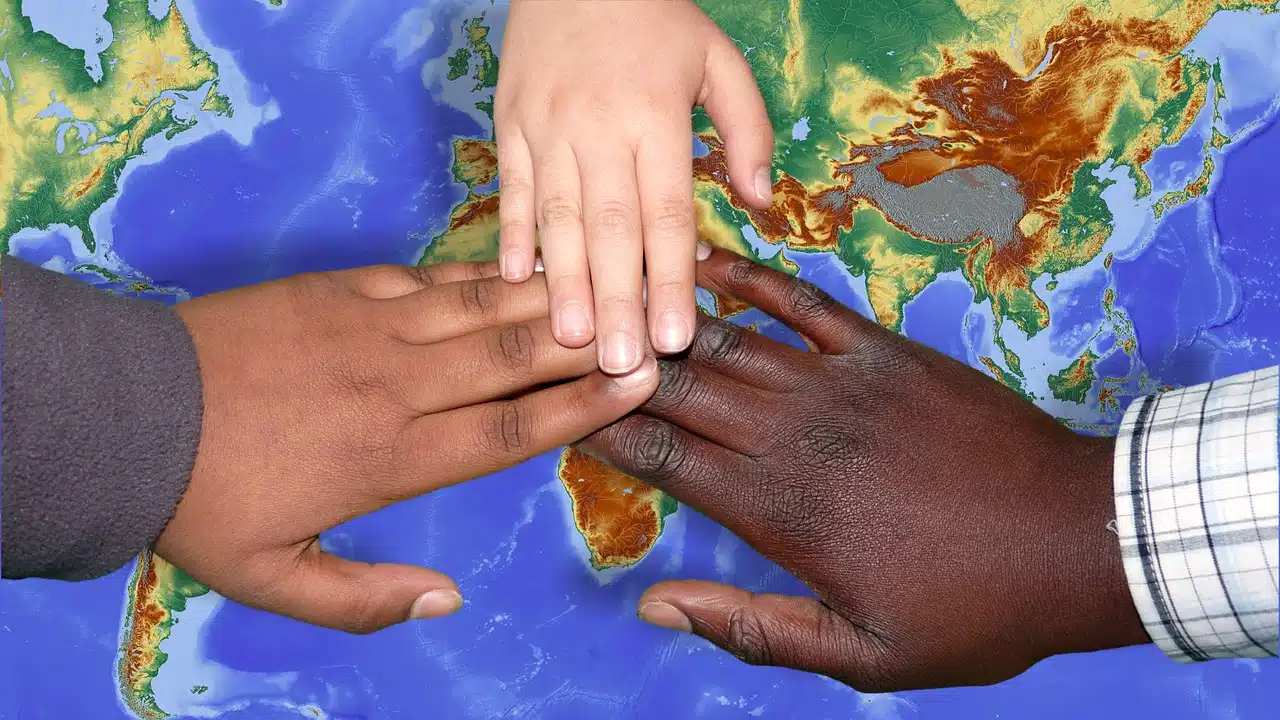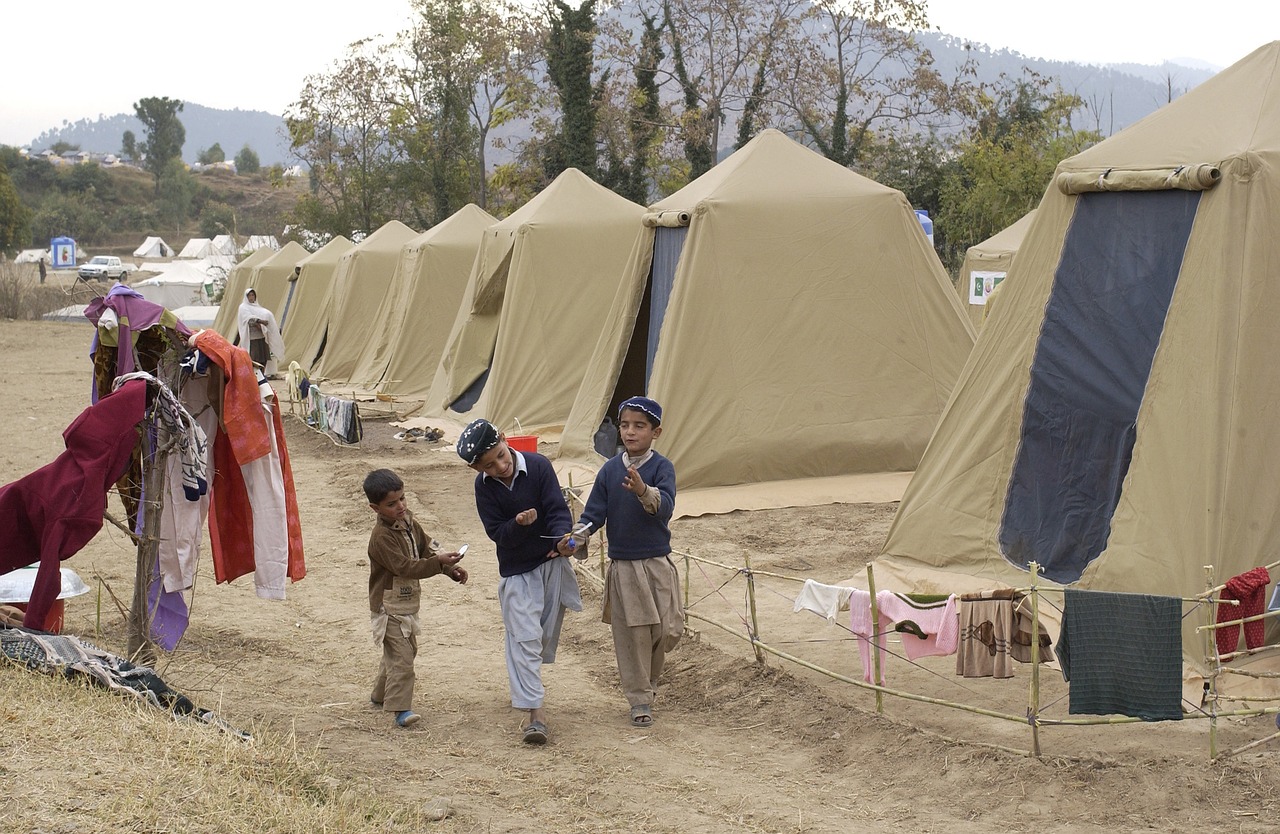
Migration has been very important in the history of humanity.
A migration is a transfer that a social group, whether human or animal, makes from its place of origin to another where it considers that it will improve its quality of life . It involves the establishment of a new life , in a different social, political and economic environment; In the case of animals, it means settling in a different habitat , one that is more conducive to the subsistence of the species.
According to the National Population Council ( CONAPO ) of Mexico , in human social terms, a migration is the displacement of the habitual residence to a different one. In some cases, individuals move countries for a set period of time.
Some examples where the term appears: «The migration of people affected by the economic crisis left several towns almost empty» , «The swallow is an animal that makes a surprising migration» , «If political persecution does not stop, we will have to think about "migration."
human migration
Migration is a phenomenon present throughout the history of human beings as a species. Various cultures and religions have some type of migration as a reference, such as the exodus of the Jewish people from Egypt . The causes of human migrations can be very varied and range from political or economic reasons to some type of catastrophe or natural tragedy .
These human migrations therefore present differentiated realities. On the one hand, emigration takes place when a subject leaves their own country to settle and establish residence in another. On the other hand, immigration is the entry into a foreign nation by subjects who come from another place. Emigration and immigration are two sides of the same phenomenon of transnational migration .
One can also speak of internal displacement when someone moves from one city to another without leaving their nation. Depending on the place and time, rural-urban migration (moving from the countryside to the city) or urban-rural migration (leaving a city to settle in an agricultural environment) may be more frequent.

Refugees are protagonists of forced migration.
A voluntary or forced decision
In a broad sense, a distinction can be made between voluntary migration and forced migration . He who chooses to leave his land without anyone forcing him and without any pressing situation, does so of his own free will. On the other hand, the individual who needs to settle in a different place to survive carries out a forced migration.
Of course, there are nuances. Whoever moves to work somewhere else ( labor migration ) or to try to improve their economy ( economic migration ) can make the decision freely, although there are factors that lead to that. Possibly, if his place of origin gave him greater comforts or more opportunities for advancement, he would not move. Seasonal migration , on the other hand, is a move to a different place for a specific period of time, generally a year, for work or study reasons.
In other cases, the forced nature is more evident. Refugees who settle in a new land after leaving their homeland due to a war or other extreme situation do not have the possibility of staying in their home. Something similar happens with those who must request political asylum since in their country they have no guarantees about the protection of their rights. Of course, issues such as human trafficking or human trafficking for labor exploitation or sexual exploitation refer to realities that are not contemplated in any immigration legislation since these movements constitute a crime.
It is interesting to mention that we speak of return migration or repatriation when individuals who have previously abandoned their land decide to return to it. Many times governments implement a return policy to promote family reunification and regain the human resource in the country that had been lost.
Migration in history and today
It is necessary to clarify that the construction of many modern countries is closely related to migration. In Argentina, for example, there were two strong migratory movements, one during the colonial era and then at the end of the 1800s. In both, the entry of foreigners into national territory collaborated with the formation of the Argentine people .
The fusion of cultures and ideologies is a particular and essential element when it comes to understanding current Argentine culture. The colonies that were established during those periods in the national territory allowed for the mixed quality of the population. The countries of origin of the majority of migrants were Italy, Spain, Russia and France .
Currently, migration and globalization are closely related notions. The coexistence of both in different societies has allowed development and modernization, providing not only advantages in cultural aspects (generating greater diversity thanks to multiculturalism ), but also in economic aspects (cheap and specialized labor, among other things). .
In any case, the social integration of migrants can be complicated. Discrimination , racism and xenophobia are common in many parts of the world. In turn, the immigration policy of some countries, which is reflected in the characteristics of border control, visas and other elements, can go against the wishes and needs of migrants.

Migration implies displacement.
Animal movement
Animal migration , on the other hand, is a movement carried out by certain mammals, birds and fish. Migration involves active behavior on the part of the animal, which must move for a long time to find the right place for reproduction, avoid the most extreme climates or simply find food.
It is important to indicate that climate change is affecting the migration of some species . According to studies by specialists, there are birds that are changing their usual migratory periods because winters tend to be shorter.
The notion in computing
Finally, it is possible to refer to another type of migration that takes place in computing .
In this framework, the process by which programs and information from one computer or system are transferred to another is called migration.
